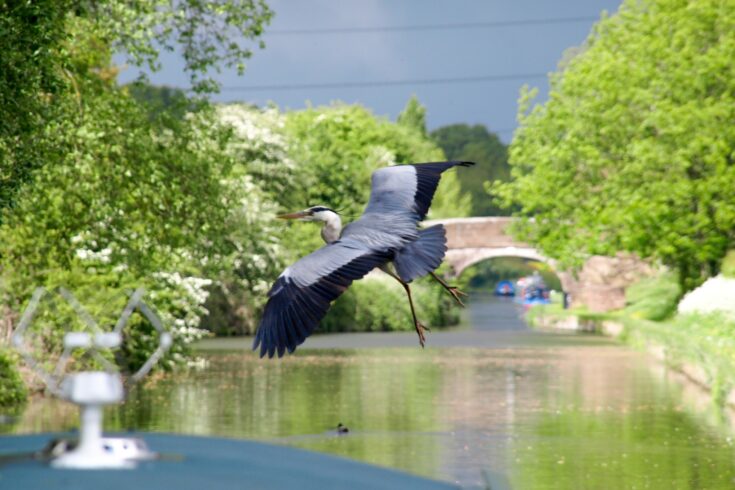This £2.1 million two-phased competition is part of the government’s marine Natural Capital and Ecosystem Assessment (NCEA) programme, which is investing £37 million in integrating natural capital evidence and approaches into decision making for the marine environment.
First round of funding
In May 2023, Innovate UK and Defra announced the winners of the competition’s first round, developing key technologies and capabilities that can be used for more efficient observation of our marine natural capital assets.
These included:
- uncrewed surface vessels (USVs) propelled by wind, wave and conventional propulsion
- autonomous underwater vessels (AUVs)
- machine learning for data analysis
- a range of sensors including vision, acoustic and audio
- 5G communications
- environmental DNA (eDNA) analysis
Second round of funding
Today, Innovate UK has announced £1.3 million of funding has been allocated across seven projects in the second stage of the competition.
These innovative projects are for the development of complete end-to-end marine monitoring systems and their verification and validation.
The Rt Hon Lord Benyon, Minister of State (Climate, Environment and Energy), said:
It is more important than ever that we invest in advanced technology such as artificial intelligence, drones and molecular tools to bolster our capabilities to monitor biodiversity in our seas.
I look forward to seeing how projects from the second round of funding will provide us with the best capabilities available so that we can improve our efforts to keep our ocean clean, healthy and protected.
Andrew Tyrer, Robotics Challenge Director, Innovate UK, said:
Being able to award more funding in a second round of this competition builds on the work of round one and represents a deepening of the partnership between Innovate UK and Defra.
It also represents the importance placed on the UK’s marine environment.
This funding will support game-changing technological innovations that will help in the end-to-end monitoring of one of the UK’s most vital natural assets.
Further information
Round two projects
Maximising seagrass regeneration through advanced artificial intelligence (AI) mapping and ultra low carbon solutions
Award winner: Unmanned Survey Solutions, Geoacoustics Ltd, Acua Ocean Ltd
This project combines the use of advanced wide swath bathymetric sonar systems that are capable of transmitting sonar beams over 40 times wider than a typical single beam sonar system.
This wider beam allows for far greater spacing between survey lines, significantly reducing survey times.
This project combines the wider beam sonar system with computer based AI and machine learning algorithms to determine the presence of seagrass meadows in the data.
This entire platform is deployed from a carbon neutral unmanned survey vessel, which, as well as having significantly lower operating costs, is also a safer option than utilising a manned vessel.
End-to-end marine monitoring solution for capturing and sharing environmental data to support marine net gain
Award winner: Plant Ecology Beyond Land CIC, Offshore Renewable Energy Catapult, Oceanos Earth Ltd
The project aims to test a comprehensive solution that includes collecting, processing and analysing data remotely and in real-time.
This involves using sensors, underwater cameras and acoustics to collect data from various sources, including environmental DNA and oceanographic datasets.
The data will be processed in a cloud-based infrastructure to ensure its integrity and security, and advanced algorithms will be used to identify patterns, trends and anomalies.
An automated end-to-end eDNA-based marine biodiversity and species monitoring system
Award winners: Platform Kinetics, Intuitiq Ltd
This project follows on from successful phase one Innovate UK funding with the development of the AMBER (Automated Monitoring of Biodiversity via eDNA Recovery) systems building blocks.
This is a deployable, end-to-end system that uses automation and lab-on-a-chip technology to sample marine water and process eDNA in near real-time as a measure of species presence, biodiversity and habitat monitoring.
Renewably powered micro-vessels for an end-to-end biodiversity monitoring system
Award winner: Oshen Ltd
After successfully confirming that our micro-vessels can monitor cetaceans and seabirds in phase one, we are embarking on phase two of our project to develop an end-to-end system.
Upon completion, our micro-vessel will enable anyone to deploy, track and change its location easily.
We will also allow users to follow live data, and have access to a database, data visualisation and an insights dashboard that highlights key metrics, removing the need for manual data processing.
Seagrass observation using novel acoustic remote sensing (SONARS)
Award winner: HydroSurv Unmanned Survey (UK) Ltd
Deployment of USV technology, carefully designed to operate in sensitive work areas without causing disturbance, and thus minimising the impact of our data collection.
By blending cutting-edge hydroacoustic data collection techniques with novel analysis components powered by recurrent neural network (RNN) long short-term memory algorithms, this enables interpretation of intricate hydroacoustic and optical datasets to gain deep insights into underwater habitats.
AlgaRover: macroalgal aquaculture marine biodiversity observation AI rover (MAMBOAR)
Award winners: Seaweed Generation Ltd, South West Mull and Iona Development, Algapelago Marine Ltd
SeaGen is developing a remotely operated AUV that is able to carry out biodiversity monitoring using environmental sensors, a camera system and passive acoustic recording.
Machine learning will be used to develop methods for animal recognition and species identification.
High speed drone constellation for real time monitoring of marine ecosystems
Award winner: Marble Aerospace Ltd
Marble is developing a new end-to-end system based on using a fleet of small (less than 10kg) high performance (more than 100km range) electric drones.
It will reduce the cost of aerial surveillance, making it affordable enough for a permanent deployment, even where budgets are limited.

